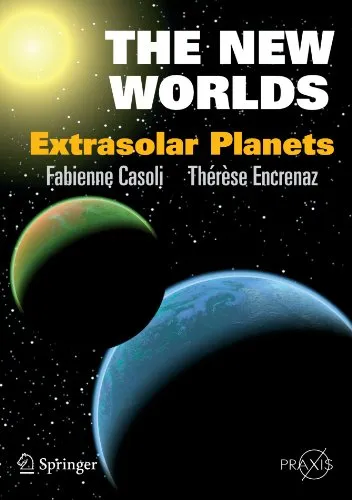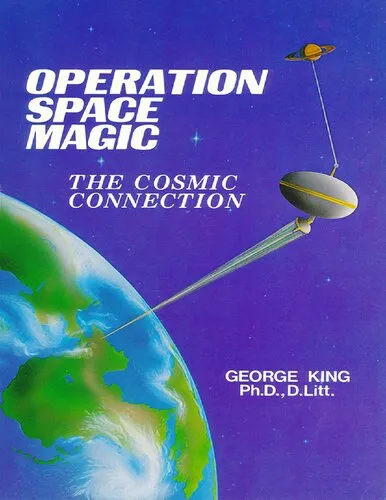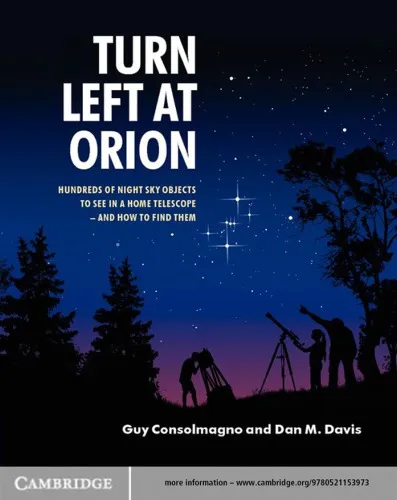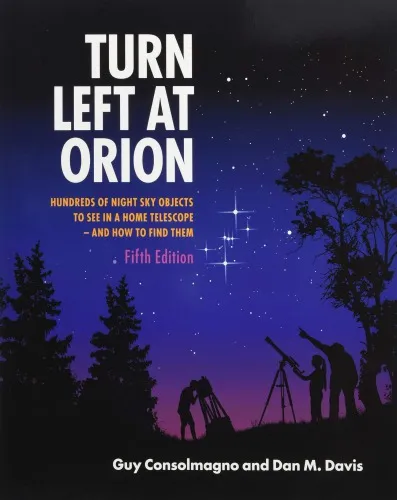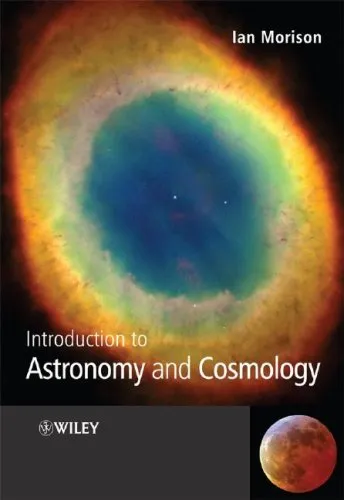The New Worlds: Extrasolar Planets (Springer Praxis Books Popular Astronomy)
4.5
Reviews from our users

You Can Ask your questions from this book's AI after Login
Each download or ask from book AI costs 2 points. To earn more free points, please visit the Points Guide Page and complete some valuable actions.Related Refrences:
Introduction to "The New Worlds: Extrasolar Planets"
"The New Worlds: Extrasolar Planets" is a fascinating journey into the realm of exoplanetary science, blending accessible discussion with the rigorous exploration of one of the greatest astronomical revolutions of our time. Written for astronomy enthusiasts, students, and curious minds alike, this book opens a window to the extraordinary world of planets beyond our solar system. Through engaging discussions and in-depth scientific insights, it sheds light on the discoveries, technologies, and theories shaping our understanding of the universe.
In the last few decades, the quest to uncover extrasolar planets—or exoplanets—has reshaped how we perceive the cosmos and humanity’s place within it. This book dives into the milestones of the search for exoplanets, the methods used to detect them, and what these discoveries could mean for the possibility of life beyond Earth. Embark on a captivating exploration that encompasses the technical marvel of modern telescopes, the resilience of astronomers in decoding cosmic mysteries, and the creative scientific models theorizing about these distant worlds.
This remarkable work bridges the gap between sophisticated scientific content and the broader public's appetite for understanding. It showcases the challenges and triumphs of exoplanet research, providing a compelling narrative that connects celestial phenomena with humanity's eternal quest for knowledge.
Detailed Summary of the Book
One of the book’s greatest strengths lies in its structured approach to explaining the intricate field of exoplanets.
The book begins by introducing readers to ancient questions about the nature of planetary systems and humanity's eternal search for other worlds. From early thoughts rooted in philosophy through to 20th-century inquiries into stellar behavior, readers gain foundational knowledge of how modern exoplanetary research emerged.
Next, the authors dive deeply into the groundbreaking techniques that allowed astronomers to identify these 'new worlds.' Concepts such as the radial velocity method, transit photometry, and gravitational microlensing are explained with clarity and in a manner that welcomes readers of all levels. Importantly, these methods are contextualized through pioneering discoveries—such as the first confirmed exoplanet detection around the star 51 Pegasi.
The book also surveys the dizzying variety of exoplanets revealed through scientific exploration: hot Jupiters, super-Earths, and rogue planets, each challenging our preconceived notions of planetary systems. A rich exploration of the potential for habitabilidad and the search for extraterrestrial life provides a thrilling conclusion to this planetary odyssey.
Throughout, the authors succeed in tying each scientific breakthrough into larger cultural and philosophical implications, making this work as much a celebration of human curiosity as it is a science text.
Key Takeaways
- The discovery of exoplanets has fundamentally changed our understanding of the universe and the potential for life beyond Earth.
- Advanced observational techniques, such as radial velocity measurements and transit detections, have been pivotal in unveiling thousands of new worlds.
- Exoplanets demonstrate an extraordinary variety, from super-Earths and mini-Neptunes to planets with extreme climates, significantly broadening the definition of what a planetary system can be.
- Astrobiology and studies of planetary atmospheres open new doors to identifying biosignatures and assessing habitability.
- Exoplanetary science is a collaborative global effort that showcases the power of science to unite humanity's quest for knowledge.
Famous Quotes from the Book
"With the discovery of exoplanets, we are now beginning to perceive the vast diversity of worlds other suns can host, each one a mystery waiting to be solved."
"The search for extrasolar planets is more than a scientific endeavor; it reflects our deepest human desire to understand our place in the universe."
Why This Book Matters
"The New Worlds: Extrasolar Planets" is not just a book about astronomy; it is a testament to the incredible power of human curiosity, innovation, and perseverance.
In the face of an ever-expanding and complex universe, this book serves as both an introduction and a guide to one of the most exciting fields currently shaping modern science. For those who dream of exploring the stars, it offers a roadmap to understanding how scientists unlock cosmic secrets. For experts in the field, it provides a holistic view of exoplanetary research with its cultural and philosophical implications.
Its significance stretches far beyond its pages—the discoveries it recounts have ramifications for the fields of astrobiology, planetary science, and even the nature of life itself. An essential read for anyone captivated by the mysteries of the cosmos, this book stands as a bridge connecting the reader’s wonder with the cutting edge of astronomical exploration.
Free Direct Download
You Can Download this book after Login
Accessing books through legal platforms and public libraries not only supports the rights of authors and publishers but also contributes to the sustainability of reading culture. Before downloading, please take a moment to consider these options.
Find this book on other platforms:
WorldCat helps you find books in libraries worldwide.
See ratings, reviews, and discussions on Goodreads.
Find and buy rare or used books on AbeBooks.
1330
بازدید4.5
امتیاز0
نظر98%
رضایتReviews:
4.5
Based on 0 users review
Questions & Answers
Ask questions about this book or help others by answering
No questions yet. Be the first to ask!
